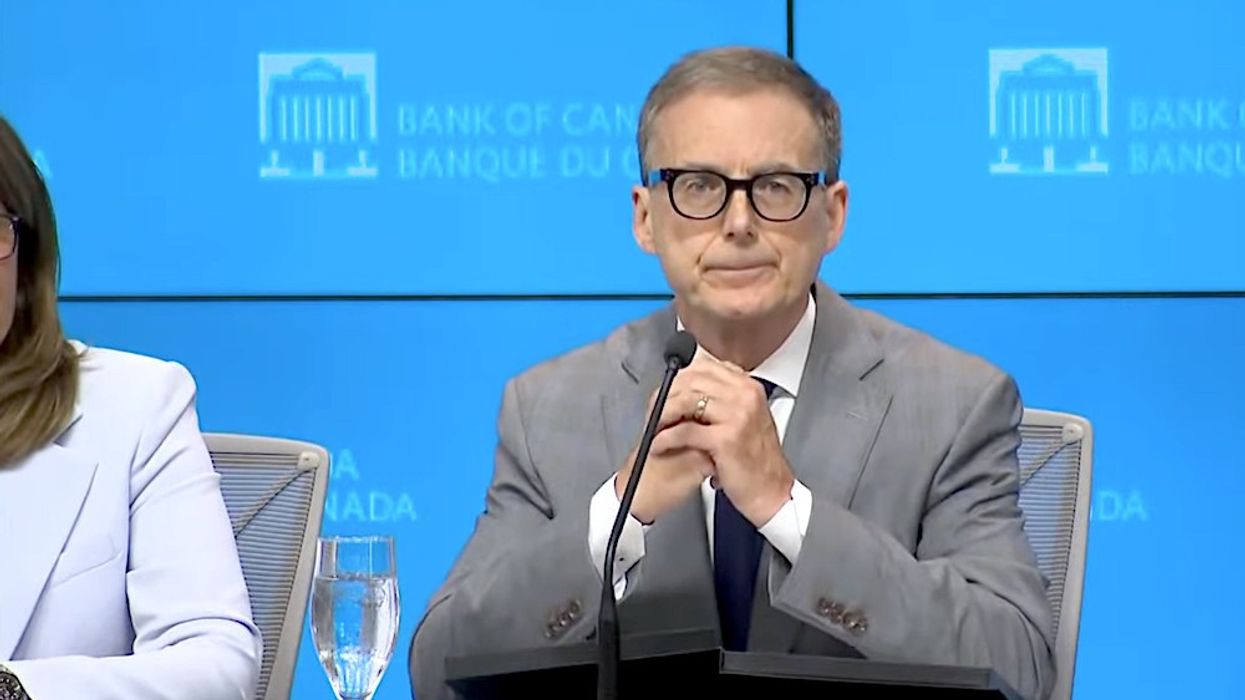In July 2020, when interest rates were at historic lows, Bank of Canada Governor Tiff Macklem assured Canadians that they would stay that way for "a long time," even encouraging would-be buyers to commit to pricey purchases.
“If you’ve got a mortgage or if you’re considering making a major purchase, or you’re a business and you’re considering making an investment, you can be confident rates will be low for a long time,” Macklem said at a press conference at the time.
Now, just over three years later — well before many 2020 buyers will see their first mortgage renewal — the Bank of Canada has implemented 10 rate hikes and is considering an 11th.
Speaking to the Chamber of Commerce in Calgary on Thursday, Macklem addressed the country's high inflation rate, noting that one reason it may not be coming back down to the bank's 2% target is because the rate hikes are taking longer than expected to work. Another possibility, he said, "is that monetary policy is not yet restrictive enough to restore price stability," meaning another hike could be needed to further limit Canadians' spending power and rein in demand.
Borrowers, particularly those who opted for variable-rate mortgages when interest rates were at a historic low of 0.25%, have felt pain with each hike as rates quickly made their way up to 5% between March 2022 and July of this year. The Canada Mortgage and Housing Corporation's annual Residential Mortgage Industry Report, released in May — even before the two most recent hikes tacked on another 0.5% to the bank's interest rate — found that residential mortgage debt had reached a record high of $2.08T in January, a 6% annual increase. This happened even as fewer people looked to purchase property due to both affordability issues and rate uncertainty.
The overall cost of living skyrocketed right alongside mortgages, with everything from grocery runs to filling up at the pump becoming a bigger and bigger drain on Canadian bank accounts in recent years. Inflation peaked in 2022 at 8.3%, and although it's come down significantly since then, hitting 3.3% in July, it's still well above what the Bank of Canada considers healthy.
And yet, Canadians have — so far, at least — kept up with their mortgage payments. In fact, the rate of borrowers late on mortgage payments has remained at the lowest on record. This has been in part thanks to Canadian banks making accommodations for clients to keep them paying as rates go up, doing everything from resetting the amortization periods of partly paid-off mortgages back to 30 years to reduce payments, to allowing interest not covered by monthly payments to accrue.
But some experts are bracing for a change.
A May report from RBC's Assistant Chief Economist Robert Hogue and Research Analyst Mishael Liu warned that mortgage delinquencies could rise by more than one-third over the next year. Canadians took on more debt during the pandemic, with household debt-to-income ratio exceeding pre-pandemic levels by late 2021. "It’s remained elevated ever since," the report reads. With cracks already forming around other forms of debt, like installment loans, credit cards, car loans, and lines of credit as the rate of consumers more than 90 days late on payments rises, Canadians are clearly struggling to cover all of their costs.
Mortgages are the largest contributor to Canadian inflation, with Statistics Canada reporting a 30.6% annual increase in mortgage costs in July — the largest increase on record. Although home sales slid 0.7% month over month in July, the Canadian Real Estate Association (CREA) reported that they were still up 8.7% year over year, with the average sale price up 1.1% from June — "a larger-than-normal increase for a single month," CREA said.
To bring down inflation, the bank needs to disincentivize demand, including the demand to hold a mortgage, and does so by making it too expensive to sustain for some.
Macklem said that although the Bank of Canada is prepared to raise its rates again, "we don't want to do any more than we have to." He said that although the rate hikes to date have caused financial struggles for Canadians, the burden of persistently high inflation is much greater.
"If we don’t do enough now, we’ll likely have to do even more later, but if we do too much, we risk making economic conditions unnecessarily painful for everybody," Macklem said. "We’ve come a long way and we don’t want to squander the progress we’ve made. We need to stay the course to restore price stability for Canadians."
Unfortunately for those who took out a mortgage in 2020 or 2021 under the pretense of having low rates for a long time, staying the course might not be an option.
- Bank Of Canada Holds Interest Rate At 5% Amid Affordability Struggles ›
- How The Bank of Canada's Rate Hike Impacts The Residential Housing Industry ›
- Opinion: In Defence Of The Bank Of Canada’s Latest Rate Hike ›





















